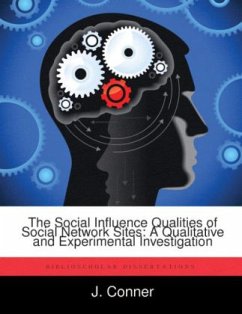While social network sites (SNS) are a popular form of new media, the literature has not investigated the social influence of these sites. Using a mixed method approach of qualitative interviews and a laboratory experiment, this study tests a process model predicting the effects of communication processes and technology on social influence. This model suggested that SNSs may be more effective at social influence than face-to-face communication. A qualitative study was performed to determine whether the hypotheses were plausible whereby it was suggested that SNSs may influence others and SNSs might be a more effective when compared to others. Qualitative results illustrate that social network sites have several strengths over traditional communications mediums and that they can be used to influence others. The results of the experiment found that face-to-face communication was more effective than social network sites at influencing others. The data implies that sharing more ideas,when combined with slower communications mediums such as SNSs, can actually result in less effective social influence attempts. However, Facebook participants overwhelmingly felt that they needed more time to complete tasks. Thus, it is not yet possible to reject the theory that SNSs have the potential to be more influential than face-to-face communication.
Hinweis: Dieser Artikel kann nur an eine deutsche Lieferadresse ausgeliefert werden.
Hinweis: Dieser Artikel kann nur an eine deutsche Lieferadresse ausgeliefert werden.








